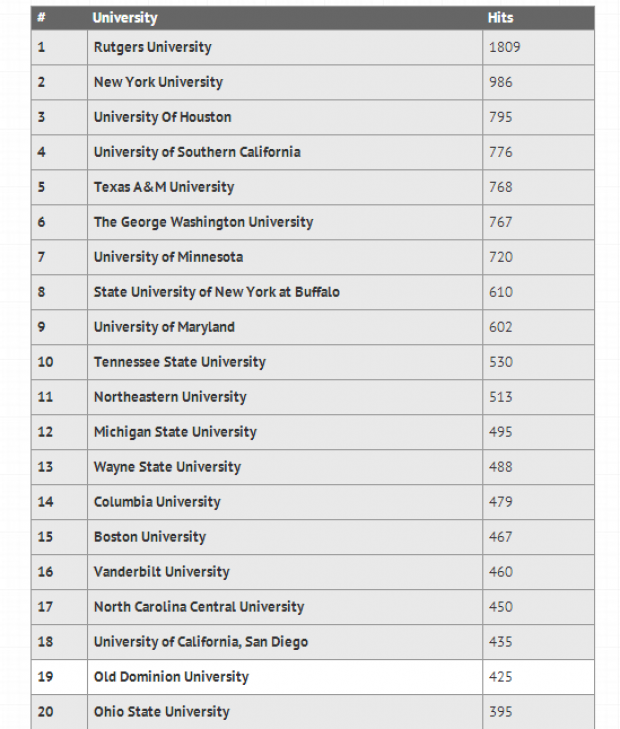U.S. college top pirates: Fact or duped by VPN?

The restriction of access to websites including The Pirate Bay and KickassTorrents has been a long-standing practice for universities in both the U.S. and United Kingdom. Suffering under the strain of heavy traffic due to students streaming films and downloading gigabytes of data via torrents, these academic institutions have attempted -- often in vain -- to curb the trend.
But when Game of Thrones isn't out for another week but has been broadcast already in another country, the temptation is no doubt difficult to resist.
Universities are not unaware of this, and put in place different guidelines for students to follow. Princeton University may suspend computer privileges for repeat offenders -- as well as pointing out the potential for criminal charges -- whereas Cambridge urges its students not to receive or distribute files that may be protected by intellectual property law.
TorrentFreak compiled a list containing the top college downloaders with hep from ScanEye, based on tracking hundreds of thousands of public torrent files. By combing through IP addresses of individual universities, you can see which collages have 'downloaded' the most torrents.
On the table below, Rutgers University leaders with 1809 "hits" from November 2011, followed by New York University (986 hits), University Of Houston (795), University of Southern California (776), and Texas A&M University (768).

However, compare this to Internet provider Comcast who has logged millions alone, and you can see that the BitTorrent network at these colleges may have indeed been scuppered by anti-piracy protocols at each college.
The figures do not include pirates who have set up a virtual private network (VPN) or proxy to cover their tracks -- a practice difficult to measure and increasing in popularity. So, in fact, it may be that file-sharing is rife in other colleges (consider MIT as an example), but are better informed over how to avoid being traced.
The average consumer may not know how to set up a VPN or use a proxy, but a student desperate to download that latest album and circumvent university systems may take the time to learn.
It would also be wrong to assume every seeded file is illegal -- as the file-sharing protocol itself is not, and can be used to distribute large, legal files. But for students wanting to save their beer tokens, "free" software and films are a continual temptation. Rutgers' most popular downloads, for example, were Microsoft Office for Mac, Witcher 2: Assassins of Kings, movie Fast Five and Pulp Fiction.
This post originally appeared on CNET.